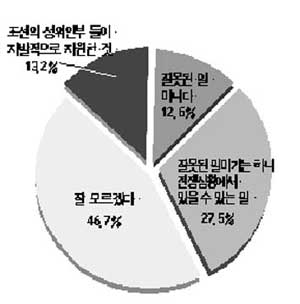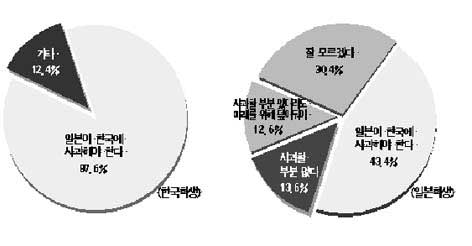
Some 20% feel that “Japan’s colonization of Korea was for the best”
More than half the Japanese students surveyed replied that they were unaware of important facts in the history of Korea-Japan relations such as the Japanese invasion in the late 16th century, the Ganghwa-do Treaty, Japan’s colonization of Korea, and the issue of comfort women. One out of five students actually thought that Japan’s colonization and rule of Korea was “for the best.”
These are the results of the survey entitled “Report on the Awareness of Korean and Japanese Students regarding Korea-Japan Relations,” conducted by the Citizens’ Group for Comfort Women (representative Kwak Dong Hyeop) in Daegu and the survey agency AINUS Research. They testify to the serious after-effects of Japanese textbooks’ distortion of history.
According to the survey, 12.6% of the Japanese students’ response to the issue of comfort women was that ‘it was inevitable considering the circumstances, and not wrongful.’ Another 27.5% replied that ‘although it was wrong, it’s something that can happen in a war situation.’ So some 40.1% accepted the rationale of war in viewing the issue of comfort women.

Regarding the past deeds of Japanese colonialists, 87.6% of the Korean students replied that ‘Japan should apologize,’ whereas Japanese students showed a variety of responses ranging from ‘Japan should apologize’ (43.4%), ‘There is nothing to apologize for’ (13.6%), ‘Even if there is something to apologize for, it should be left alone for the sake of the future’ (12.6%). Students in both countries agreed that the past relationship was one of ‘confrontation’ rather than ‘cooperation,’ and predicted that ‘although there will be cooperation in the future, confrontational elements will remain.’
The survey was conducted on 1,262 students (960 from Korea and 302 from Japan) over a period of 4 months from September to December last year, through interviews for Korean students and interviews and email for Japanese students.

